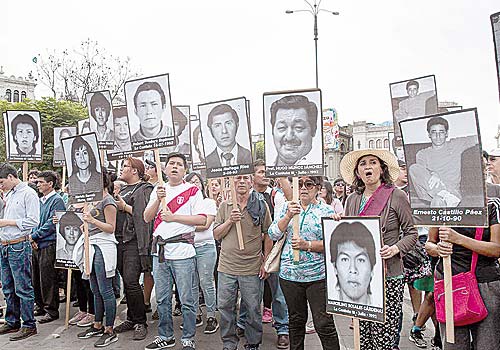Colombia: demobilized guerillas targeted for terror
The United Nations condemned the assassination of two demobilized FARC members at an election campaign rally in the central plaza of Peque, a town in Colombia's Antioquia department. The UN Verification Mission noted that this was the first deadly attack within the framework of the 2018 electoral process, in which the FARC is participating as a newly formed political party. According to a December report by the UN mission, 36 demobilized FARC fighters and 13 of their family members have been killed in reprisal attacks since the peace deal with the government took effect in late 2016. The FARC’s presidential candidate and former military commander Rodrigo Londoño said members of the organization "have been the target of constant persecution by armed actors that seek to destabilize the implementation of the peace accords." (Photo: Colombia Reports)




